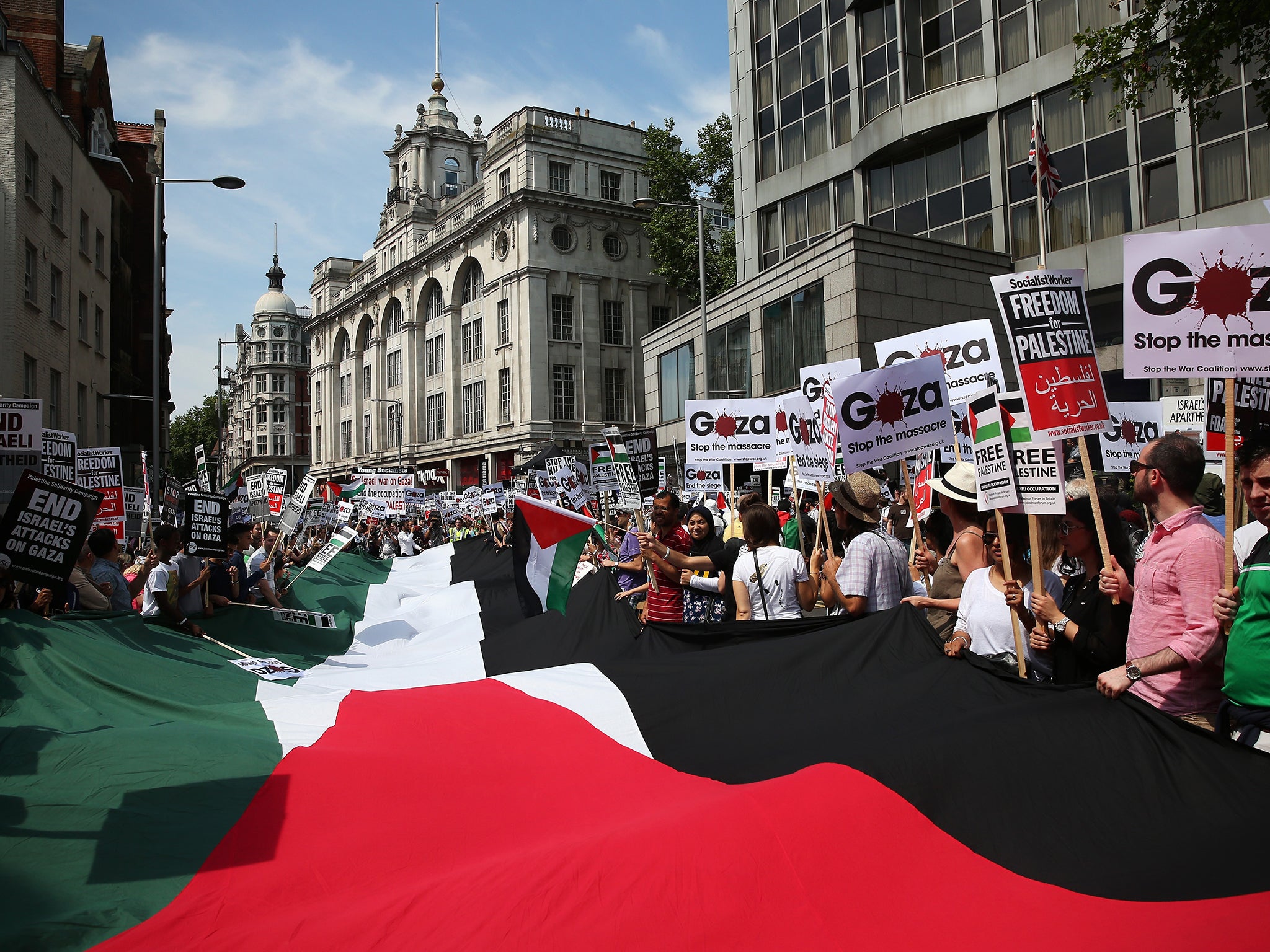Palestinian statehood: Do we treat Israelis and Palestinians as equals or not?
For too long the principles of self-determination and recognition of their independent state have been considered matters of privilege for Palestinians, not their right


Your support helps us to tell the story
From reproductive rights to climate change to Big Tech, The Independent is on the ground when the story is developing. Whether it's investigating the financials of Elon Musk's pro-Trump PAC or producing our latest documentary, 'The A Word', which shines a light on the American women fighting for reproductive rights, we know how important it is to parse out the facts from the messaging.
At such a critical moment in US history, we need reporters on the ground. Your donation allows us to keep sending journalists to speak to both sides of the story.
The Independent is trusted by Americans across the entire political spectrum. And unlike many other quality news outlets, we choose not to lock Americans out of our reporting and analysis with paywalls. We believe quality journalism should be available to everyone, paid for by those who can afford it.
Your support makes all the difference.Today I will cast my vote in Parliament to support UK recognition of the State of Palestine alongside the State of Israel.
The principle at stake here is a simple but key one for anyone seeking a just a durable solution to the conflict in the Middle East. Do we treat Israelis and Palestinians as equals or not? For Israelis, recognition of their state is something they have expected from the international community as a matter of right, not as a privilege. It is something they secured bilaterally from Britain over 65 years ago. And over 20 years have passed since the PLO, representing the people of Palestine as a whole, also formally recognized the state of Israel.
International recognition of Israel is not in doubt. Even so, successive Israeli governments still consider constant reaffirmation of recognition of Israel’s statehood to be fundamental. So fundamental, in fact, that they insist that they will only engage in peace talks with President Abbas’ PLO, which recognizes Israel, not with any Palestinian faction such as Hamas which does not. “How,” ask senior Israeli politicians, “can you talk with people who do not recognize your right to exist?” For them, recognition of Israel is not something to come out of in negotiations, but a precondition on those even seeking a place at the table in the first place .
But when it comes to Palestinians, the equation changes. For too long those same principles – of self-determination and recognition of their independent state, have been considered matters of privilege for Palestinians, not as their right. Even today in our own Parliament, some MPs have tabled an amendment favoured by the Government of Israel which would make UK recognition of the Palestinian state conditional, not only on negotiations taking place between Palestine and Israel, but on the outcome of those negotiations. In other words, they are asking the UK Parliament to give Israel the right of veto over our own decisions. That is as unacceptable as suggesting that the Palestinians should have had a veto over UK recognition of Israel all those years ago.
The UK should continue to impress on Israel the importance its recognizing the State of Palestine just as the State of Palestine has recognized Israel. We should also try to convince those Palestinian and Israeli parties who still oppose mutual recognition, that they should drop their opposition. But we make our own decisions on our own recognition of both states. We do so bilaterally, as a member of the EU and at the United Nations.
There is no doubt that the peace and security which both Israelis and Palestinians have been cruelly denied for so many years will only come from a negotiated settlement founded on successive UN resolutions and the principles of international law. At the centre of those UN resolutions is the principle of a Palestinian state living alongside the state of Israel. The reality is, however, that those negotiations are not happening. And the prospects for peace further recede every time new settlement expansion severs one part of the West Bank from another; every time another Palestinian family is pushed out of East Jerusalem; every day the blockade on Gaza continues; and every time a rocket from Gaza is fired into southern Israel or an Israel missile destroys a home in Gaza.
By affirming without ambiguity that both Israelis and Palestinians have equal rights to statehood, international recognition of the State of Palestine can help break this impasse. That is why another amendment tabled by Jack Straw and other senior MPs makes clear that by voting for recognition today MPs will contribute to securing a negotiated two state solution. It is time to act to save the prospect of a two state solution, not to allow our inaction to collude in its slipping away. Last week Sweden became the latest country to state that it will recognize the State of Palestine, joining the 134 others who have already done so. By voting today in favour of recognition by the UK, MPs will signal clearly to the UK Government that Britain should also play a leading role in establishing the principle of equality that is vital to peace. The double standards must end. For Palestine just as much as Israel, statehood, as shadow Foreign Secretary Douglas Alexander has said, “is not a gift to be given but a right to be recognized.”
Join our commenting forum
Join thought-provoking conversations, follow other Independent readers and see their replies
Comments